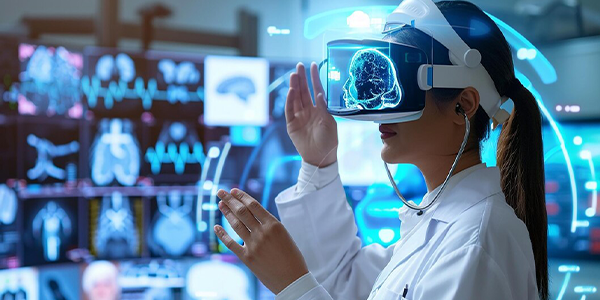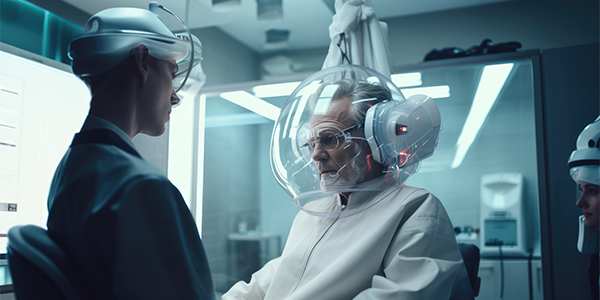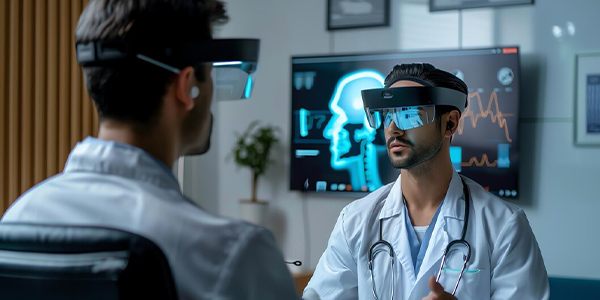
Custom Solutions
End-to-End Implementation
Global Expertise
Key Use Cases of AR/VR/MR in Healthcare
Medical Training and Education
Training the next generation of healthcare professionals has never been more efficient or immersive. Traditional training methods are being complemented and even replaced by VR-based simulations that allow students and doctors to practice surgeries, diagnose illnesses, and interact with medical scenarios in a controlled, risk-free environment.
Surgical Assistance with AR
AR is enabling surgeons to perform complex procedures with more precision by providing real-time data overlays, visualizing hidden structures, and improving navigation. With AR glasses, surgeons can see 3D holograms of patient anatomy, such as bones, blood vessels, and organs, directly superimposed on the patient’s body.
Patient Care and Therapy
Immersive technologies are not only enhancing medical procedures but also transforming patient care and rehabilitation. VR is increasingly being used for mental health treatments, physical rehabilitation, and pain management.
Medical Imaging and Diagnostics
AR and VR are being increasingly integrated into diagnostic processes to help doctors visualize and interpret medical scans like MRIs and CT scans in three dimensions. This enhances the ability to diagnose complex conditions and provides clearer insights for treatment planning.
Global Impact of AR/VR/MR in Healthcare
The healthcare sector is projected to experience a massive growth in AR/VR/MR adoption over the next decade. Globally, the AR/VR healthcare market is expected to reach $9.5 billion by 2028, growing at a CAGR of 27.2%. The increasing adoption of these technologies across countries is driven by their ability to enhance training, improve surgical outcomes, and provide better patient care.

USA
Over 60% of top hospitals are expected to integrate AR/VR technology into their training programs by 2025.
Europe
AR-based surgical procedures have increased by 25% annually over the past two years.
China
Over 1,000 hospitals are using VR for medical training, with the number expected to double by 2026.
Let Qvolv Help You Transform Healthcare
Interested in learning how our AR/VR/MR solutions can revolutionize your healthcare practice? Contact Qvolv Technologies today to explore how we can develop tailored solutions for your organization.





